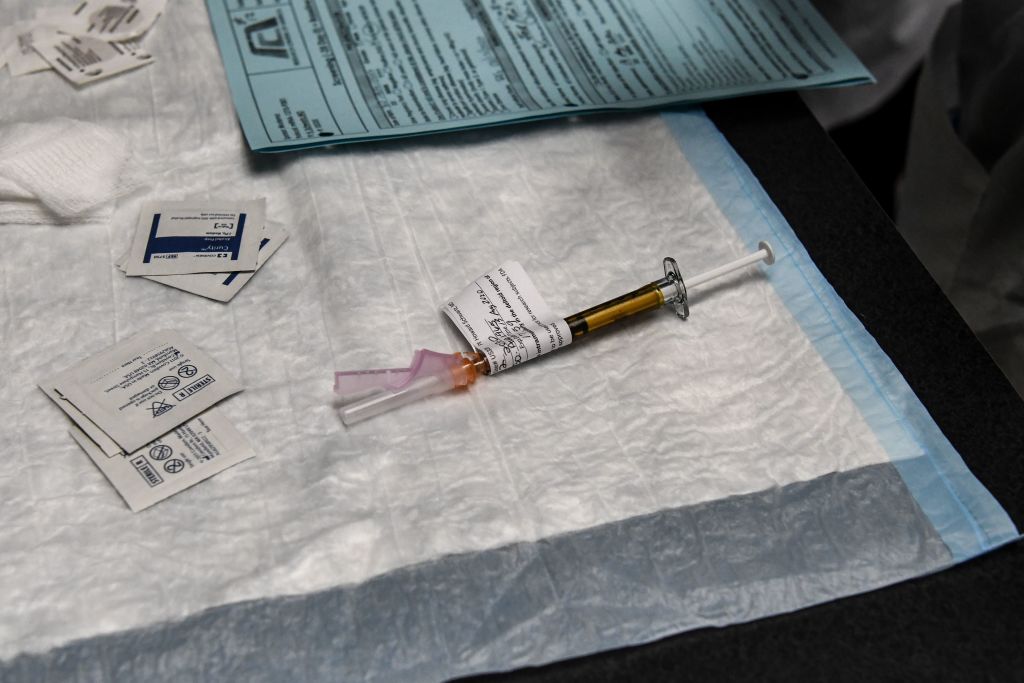Coronavirus vaccine researcher: 'People will die because of a lack of faith in the system'


A free daily email with the biggest news stories of the day – and the best features from TheWeek.com
You are now subscribed
Your newsletter sign-up was successful
The clearest way for the U.S. to emerge from the coronavirus pandemic, Stat News reports, is to achieve herd immunity through vaccination. Experts estimate that will occur once 50 to 70 percent of the population is protected. But, as Kawsar Talaat, a vaccine researcher at Johns Hopkins University points out, "the most effective vaccine in the world is useless if no one will accept it."
There's a lot of skepticism about a coronavirus vaccine across the political spectrum in the U.S. A new Axios poll released Tuesday showed that only 43 percent of Democrats and 33 percent of Republicans would take a first-generation vaccine as soon as it's available, and the numbers have trended downward rapidly over the last few months.
The expectation is that there will be more than one vaccine rolling out over time, so it's possible those numbers would go back up as safety and efficacy become more clear, but there's certainly a disconnect between the public and the government and scientific community on the issue. "I think people will die because of a lack of faith in the system," Talaat said, arguing that the Centers for Disease Control and Prevention have wavered on testing guidelines, and the Food and Drug Administration has been undermined by the optics of political interference from the Trump Administration. Stat notes that others want vaccine makers to be more transparent about the process.
The Week
Escape your echo chamber. Get the facts behind the news, plus analysis from multiple perspectives.

Sign up for The Week's Free Newsletters
From our morning news briefing to a weekly Good News Newsletter, get the best of The Week delivered directly to your inbox.
From our morning news briefing to a weekly Good News Newsletter, get the best of The Week delivered directly to your inbox.
Either way, Talaat said, "you can't talk your way into trust. You need to demonstrate that you're trustworthy, and that the process is trustworthy." Read more about how the pandemic may play out over the course of the next year at Stat News.
A free daily email with the biggest news stories of the day – and the best features from TheWeek.com
Tim is a staff writer at The Week and has contributed to Bedford and Bowery and The New York Transatlantic. He is a graduate of Occidental College and NYU's journalism school. Tim enjoys writing about baseball, Europe, and extinct megafauna. He lives in New York City.
-
 How the FCC’s ‘equal time’ rule works
How the FCC’s ‘equal time’ rule worksIn the Spotlight The law is at the heart of the Colbert-CBS conflict
-
 What is the endgame in the DHS shutdown?
What is the endgame in the DHS shutdown?Today’s Big Question Democrats want to rein in ICE’s immigration crackdown
-
 ‘Poor time management isn’t just an inconvenience’
‘Poor time management isn’t just an inconvenience’Instant Opinion Opinion, comment and editorials of the day
-
 Trump HHS slashes advised child vaccinations
Trump HHS slashes advised child vaccinationsSpeed Read In a widely condemned move, the CDC will now recommend that children get vaccinated against 11 communicable diseases, not 17
-
 FDA OKs generic abortion pill, riling the right
FDA OKs generic abortion pill, riling the rightSpeed Read The drug in question is a generic version of mifepristone, used to carry out two-thirds of US abortions
-
 RFK Jr. vaccine panel advises restricting MMRV shot
RFK Jr. vaccine panel advises restricting MMRV shotSpeed Read The committee voted to restrict access to a childhood vaccine against chickenpox
-
 Texas declares end to measles outbreak
Texas declares end to measles outbreakSpeed Read The vaccine-preventable disease is still spreading in neighboring states, Mexico and Canada
-
 RFK Jr. shuts down mRNA vaccine funding at agency
RFK Jr. shuts down mRNA vaccine funding at agencySpeed Read The decision canceled or modified 22 projects, primarily for work on vaccines and therapeutics for respiratory viruses
-
 Measles cases surge to 33-year high
Measles cases surge to 33-year highSpeed Read The infection was declared eliminated from the US in 2000 but has seen a resurgence amid vaccine hesitancy
-
 Kennedy's vaccine panel signals skepticism, change
Kennedy's vaccine panel signals skepticism, changeSpeed Read RFK Jr.'s new vaccine advisory board intends to make changes to the decades-old US immunization system
-
 Kennedy ousts entire CDC vaccine advisory panel
Kennedy ousts entire CDC vaccine advisory panelspeed read Health Secretary RFK Jr. is a longtime anti-vaccine activist who has criticized the panel of experts
